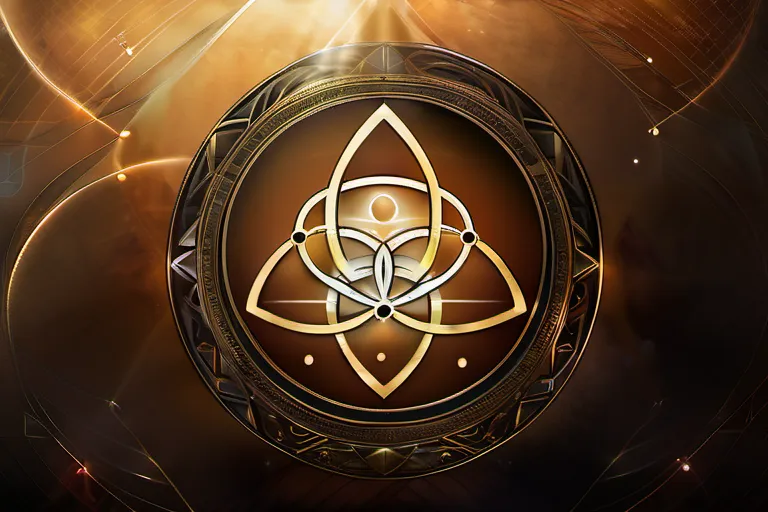Unveil the deep meaning behind the Christian doctrine of the Holy Trinity with this comprehensive guide.
The Holy Trinity, a fundamental concept in Christianity, refers to the belief in one God existing in three persons: the Father, the Son (Jesus Christ), and the Holy Spirit. In this article, we delve into the intricacies of the Holy Trinity, exploring its origins, significance, and the roles of each person within this divine unity.
The Origins of the Holy Trinity
The origins of the Holy Trinity, often shrouded in mystery, are a fascinating journey through time and scripture. How did this foundational belief come to be? Was it always clearly defined, or did it evolve over centuries? The Holy Trinity consists of three persons—Father, Son, and Holy Spirit—but only one God. This concept might seem paradoxical, yet its roots trace back to the ancient texts of the Bible.
What did the early Christians believe? In the earliest days of Christianity, the focus was on Jesus Christ as a divine figure. However, over time, scholars like Tertullian and Athanasius began to articulate the idea that the Father, Son, and Holy Spirit were not three separate gods but one God in three persons.
The Nicene Creed, formulated during the First Council of Nicaea in 325 AD, formalized this belief. It declared that there is “one Lord, Jesus Christ, the only Son of God, … from the Father, begotten not made.” This statement was a response to Arianism, which taught that Jesus was created and thus not co-eternal with God.
The development of Trinitarian theology wasn’t without controversy. It took several council meetings and extensive theological debates to solidify this doctrine within Christian tradition. The Council of Constantinople in 381 AD added the Holy Spirit to the creed, affirming that He is “of one being with the Father.”
Through these historic events, the mystery of the Holy Trinity became a cornerstone of Christian faith. It’s a belief that challenges our understanding but also enriches it. How can three persons be one God? The answer lies in the depths of divine nature and the unsearchable wisdom of God.
The Father: God Almighty
The Father: God Almighty
Imagine the universe as a vast, endless ocean, and within it, the essence of creation itself—God the Father. In Christian theology, the concept of the Holy Trinity introduces us to the complex yet beautifully simple idea that there is one God in three persons: the Father, the Son, and the Holy Spirit. But what does this mean for our understanding of the Father? Is He simply a distant, aloof figure or a loving and nurturing presence?
The term ‘Father’ doesn’t just denote a familial relationship but carries deep theological significance. In many ways, God as the Father is like the architect of the universe—a master builder who meticulously designs each aspect of creation. Just as a parent lays down the foundational principles for their child’s life, so too does God establish the laws and boundaries that govern the cosmos.
But beyond being a creator, God as the Father is also the sustainer. He doesn’t just bring things into existence; He keeps them in existence, ensuring order and harmony within His creation. This is like a gardener who not only plants seeds but waters and nurtures the garden to ensure its growth and beauty.
Moreover, the Father is seen as the provider—giving sustenance, guidance, and provision for all that we need in life. Just as a father gives to his children, so God provides for us with wisdom, grace, and every good gift (James 1:17). This role of providing isn’t just about material things but also encompasses spiritual and emotional support.
So, when we contemplate the nature and characteristics of God the Father, it invites us to think deeply about our relationship with Him. Who is this Father who has set forth such a vast universe for us? How do His attributes of creation, sustenance, and provision shape our understanding of divine love?
As we explore these aspects, we can’t help but marvel at the depth and breadth of the Father’s role within the Holy Trinity. He is not just a figurehead; He actively engages with His creation, guiding it towards its ultimate destiny.
Reflect on this: How does your understanding of God the Father impact your relationship with Him and others?
In contemplating these questions, we begin to peel back the layers of mystery surrounding the Holy Trinity, bringing us closer to a deeper appreciation of the divine nature that underpins all of existence.
The Son: Jesus Christ
The Son: Jesus Christ, the savior and redeemer, is at the heart of Christian theology. Who is this mysterious figure who walked among us, teaching and healing? Was he simply a man or something more profound?
Consider the metaphor of light in darkness; just as a lamp illuminates a room, Jesus came to enlighten humanity’s path. He was not merely a guide but the ultimate light, revealing God’s love and truth. In his ministry, he performed miracles that defied explanation, showing his connection to divine power.
But why did Jesus come to earth? Was it only to teach or was there a deeper purpose? Many believe he came as The Lamb of God, destined to take away the sins of the world. His sacrifice on the cross is central to Christian doctrine, symbolizing redemption and forgiveness. How can such an event have such profound impact on our souls?
Jesus’ teachings were radical and transformative. He talked about love, compassion, and serving others—ideas that challenge us even today. By following his example, believers seek to live lives that reflect Christ’s teachings and bring light into the world.
The role of Jesus as savior is not just a historical fact but a living reality for those who believe in him. He offers forgiveness and salvation, providing a bridge between humanity and God. His resurrection from the dead is seen as a powerful testament to his divine nature and the promise of eternal life for believers.
Reflect on your own life—how can you embrace Jesus’ teachings more fully? How does knowing about his role as savior and redeemer influence your relationship with God?
The Holy Spirit: The Presence of God among Us
The Holy Spirit: The Presence of God among Us
Imagine walking through a dense forest, surrounded by towering trees and vibrant greenery. Suddenly, a gentle breeze stirs the leaves, bringing a sense of peace and guidance. This is akin to the role of the Holy Spirit in our lives. The Holy Spirit is not just a concept or an abstract idea; it’s a living presence that guides us and empowers us daily.
But what exactly does it mean for the Holy Spirit to be present among believers? When we speak of the Holy Spirit, we’re talking about the third person of the Trinity, working in harmony with the Father and the Son. The Holy Spirit is often likened to a faithful friend who accompanies us on our spiritual journey.
Consider this: Just as Jesus promised his disciples after his ascension, the Holy Spirit would come to guide them (John 14:26). This promise wasn’t just for those living in biblical times; it’s also extended to us. The Holy Spirit empowers believers with the gifts of wisdom, understanding, and the ability to discern truth from falsehood.
How do we recognize the work of the Holy Spirit in our lives? One way is through the experiences of joy, comfort, and spiritual insight. When we feel a deep sense of peace or receive unexpected guidance, these are signs of the Holy Spirit’s presence. Additionally, the Holy Spirit enables us to fulfill Christ’s commandments by living holy and righteous lives.
The role of the Holy Spirit in our daily lives is multifaceted. It provides comfort during trials (Romans 15:9), convicts us of sin (John 16:8), and helps us grow in faith (Ephesians 4:30). Through prayer, we can invite the Holy Spirit to lead us and strengthen our relationship with God.
Reflecting on these roles, it’s clear that the Holy Spirit is not just a distant presence but an active, essential part of our spiritual life. As believers, we are called to embrace this divine companionship and let it guide us every step of the way.
The Unity and Distinctions within the Trinity
Imagine the Holy Trinity as a symphony orchestra, where each instrument plays its unique role but all contribute to the same melody. In this analogy, the three persons—Father, Son, and Holy Spirit—are like the different instruments working together in harmony yet distinct from one another.
How can we reconcile their unity with their individuality? The concept of unity in diversity becomes essential here. Just as a violin and a cello, though different in sound, blend seamlessly to create a rich tapestry of music, the three persons of the Trinity are united in their singular divine essence but manifest differently in their roles.
The Father is often seen as the source or originator, like the conductor who sets the tone for the entire symphony. The Son, on the other hand, can be likened to the lead soloist who embodies and brings forth the Father’s will through his life and teachings. And the Holy Spirit acts much like a resonant echo, amplifying the message of love and grace throughout the world, even after Christ ascended.
But how do these distinctions impact our understanding of God? If they are one in essence, why do we need to acknowledge their individual personalities and functions? The answer lies in the richness that diversity brings. Just as a complex piece of music becomes more profound with multiple layers, so too does our relationship with God deepen when we recognize each person’s unique role.
How can we embrace these distinctions without dividing them into separate deities but seeing them as one? It’s like trying to grasp the wind—intangible yet ever-present. Each of us experiences the Holy Spirit in different ways, just as every note in a symphony resonates uniquely within our hearts and minds.
In exploring the unity and distinctions within the Trinity, we find not only a profound mystery but also a powerful message of community and cooperation. Just as the instruments of an orchestra must work together to create beautiful music, Christians are called to live in harmony, reflecting the love and unity of the Holy Trinity in our daily lives.
The Significance of the Holy Trinity in Christian Theology
How does one truly grasp the profound significance of the Holy Trinity in Christian theology? It’s like trying to capture the essence of light in words—something that is both ubiquitous and mysterious, yet essential for life as we know it.
In Christian doctrine, the Holy Trinity is not just a theological concept; it shapes our understanding of God’s nature and our relationship with Him. If you think about it, every aspect of faith—from salvation to the very essence of who we are—has its roots in this mysterious union of Father, Son, and Holy Spirit.
Consider the way water can exist as ice, liquid, or vapor. Each form is distinct yet fundamentally water. In a similar vein, the three persons of the Trinity each have unique roles but are one divine essence. This unity in diversity challenges us to think beyond simple dualities and embrace the complexity of God’s love.
The Holy Trinity has a profound impact on beliefs about salvation. If we believe that Jesus is both fully human and fully divine, it opens up a vast realm of understanding: that His sacrifice was not merely human but a cosmic act involving all three persons. How can one person’s suffering save the world? The answer lies in the mystery of the Trinity, where each person’s role is intertwined yet distinct.
Moreover, the concept of the Holy Trinity reshapes our view of humanity itself. When we understand that God loves us as a father (the Father), reveals Himself through His son (Jesus Christ), and guides us with the Holy Spirit, it changes how we see ourselves in this world. It’s not just about being created in God’s image; it’s about experiencing a divine presence that is both personal and communal.
Reflect on these ideas: How does the belief in the Trinity affect your understanding of God’s love for you? Does it change your approach to daily life, relationships, or even how you perceive others?
Conclusion
 Upon finishing this guide, you will have a deeper understanding of the Holy Trinity, its unique characteristics, and why it holds central importance in Christian theology. By gaining insight into this complex doctrine, you can appreciate its profound impact on Christianity and the world.
Upon finishing this guide, you will have a deeper understanding of the Holy Trinity, its unique characteristics, and why it holds central importance in Christian theology. By gaining insight into this complex doctrine, you can appreciate its profound impact on Christianity and the world.











